The No Bummer Summer: Promoting Adolescent Literature with Ubuntu during CWP-Fairfield's Young Adult Literacy Labs and Teachers Institutes
The authors: Bryan Ripley Crandall, Jessica Baldizon, Kimberly Herzog, Brynn Mandel, William King, Shaun Mitchell, Dave Wooley, Ali Adan, & Abu Bility.
Joke #2: Why did the dolphin cross the beach? To get to the other tide.
Joke #3: Do fish go on vacation? No, because they’re always in school.
For many of us who chose a career in education, it seems we, like fish, are always in school. Knowing that many of us have returned/are returning to classroom obligations this week, we thought a few jokes might be a playful way to start a piece on “how we spent our summer vacation.” Despite rumors and myths about ‘time off,’ it is more honest to say that teachers use June, July and August to participate in professional development, to sign-up for pedagogical workshops, and to enroll in courses at local colleges and universities. For many, summer months mean the busy season, including most of us who work with National Writing Project sites.
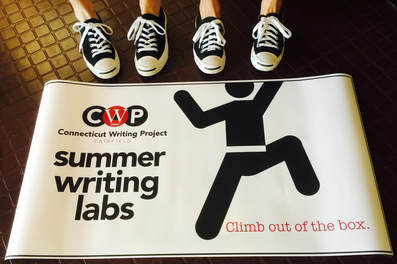
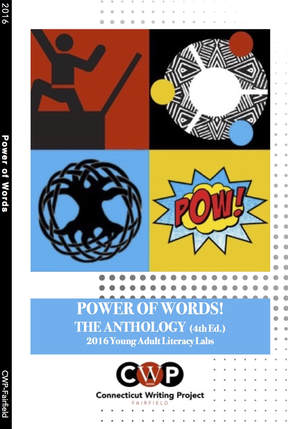
The formative experiment resulted in a re-energizing of our summer work, including intentional use of YA texts to promote relevant writing instruction with youth participants. The Young Adult Literacy Labs now average 200 young people each summer (no bummer there), with over half receiving full or partial scholarships. The teachers who participate in our summer institute for teaching writing, too, have several opportunities to work alongside young people in the literacy labs. All are published in our anthology, POW! Power of Words, the collection of our best summer writing.
Throughout the work we reflect through a lens of Writing Activity Genre Research (Russell, 2009) and Ubuntu, the S. African Bantu philosophy for togetherness and community (Caracciolo & Mungai, 2009; Swanson, 2007). We explore how young adult literature, a tool, helps us to build innovative writing communities. In the words of Swanson (2007), “Ubuntu is recognized as the African philosophy of humanism, linking the individual to the collective through ‘brotherhood’ or ‘sisterhood’”(p. 55). A writer becomes a writer, we believe, when he/she feels part of a larger writing community. The literacy labs are designed as democratic spaces to promote togetherness and collaboration. That is why we’ve been intentional with the use of young adult literature.
For the last two years, Young Adult texts have helped us to enhance our Young Adult Literacy Labs, especially Project Citizen and Ubuntu Academy. Project Citizen is a summer program for argumentation and activism, and was intentionally designed for diverse demographics. Ubuntu Academy is our literacy lab to promote English language learning for newly arrived students. We select YA books that we predict will have a wide appeal among our young writers, but those with much instructional potential. We host Project Citizen,Ubuntu Academy and a summer writing institute for teachers simultaneously so there will be numerous opportunities to collaborate. We also use copies of chosen texts to model possible writing and to initiate conversations between teachers and youth. During the labs, we schedule events so that young people and teachers can interact with one another without the traditional hierarchy of school. Our end-goal is for everyone to achieve a written outcome for publication, and the young adult novels are our catalyst for conversation, interaction, and instruction.
Ubuntu Academy - Young Adult Texts For Summer Writers.
/ʊˈbʊntu/
noun
An African philosophy that means,
“I can be me because of who we are together.”
Don’t think about your own self; think about others.
Treat others as you want to be treated.
As in, working together in a team with friends,
because we can achieve our goals to
change the world more easily.
As in, a group of unique men and women from different backgrounds
who speak different languages, but who have the same goals.
As in, using communication to practice English language
and to get along, get to know, and understand
each other while making new friends.
I miss my teachers. I miss hunting rabbits in the forest. I would go to the market and sell the rabbits for money. I miss the food from Rwanda, too, like Maize and beans, but in the USA there are only beans. I miss Rwanda, my friends, my school and the people. I miss my Uncle Safi because he gave me money to go to the market for gum and candies. I would swim in the Lake Kevu with my friends Azali, Sabi, & Claude. I miss the mangoes, cassava, potatoes, and juice.
Simon’s autobiography, as well as Remy’s poem, resulted from opportunities to read The Crossover and to think about Alexander’s craft. As new writers of the English language, participants benefited from writing instruction during Ubuntu Academy, especially in terms of style and language used by the author. Reading like writers, enhanced their written outcomes.
Since 2014, Ubuntu Academy has enrolled over 122 young people from Vietnam, Ecuador, Bangladesh, Benin, Eritrea, Haiti, Guatemala, Tanzania, Sudan, Honduras, Dominican Republic, Puerto Rico, Congo, Rwanda, and Burundi. William King, an ESL teacher who works with many of these young people during the school year, has found ways to use the summer reading as a carryover into his school year. William shares, “Using engaging texts, like Outcasts United, has been my way of meeting students where they are. Through reading such work with them, they teach me what I need to know. In turn, I provide them new opportunities and safe spaces for intellectual growth.” In the last few years, young writers in Ubuntu Academy have advanced their language skills through reading Alexander’s Booked (2016) and Rebound (2018), as well as Warren St. John’s Outcasts United (2009). Another influential text was Katherine Applegate’s Home of the Brave (2007), a narrative, like Alexander’s, told in poetic form. We used Applegate’s book as a collaborative tool between Fairfield University Art Museum and participant’s in our program. Teachers in the summer institute, as well as youth in Ubuntu Academy, discussed Applegate’s poems in relation to Rick Shaefer’s Refugee Trilogy, the art exhibit that debuted at Fairfield University the following semester. Ubuntu youth and summer institute teachers wrote in response to Home of the Brave and recorded their writing into podcasts. These podcasts could then be heard by museum patrons while viewing Shaefer’s artwork at Fairfield University.
Ubuntu Academy benefited from the adoption of YA texts, especially those written in verse, and texts depicting relocation stories (for additional texts, see The Tired. The Poor. The Hungry from January 29, 2017). Such literature has provided a foundation for the lessons we create, the vocabulary we share, the genres we promote, and the self-esteem we hope to build. The opportunity to explore YA texts during summer months also helps us to celebrate YA literature with colleagues in our individual school districts. Sharing writing achieved by youth during the summer is great evidence for the power of using such books during the school year.
Project Citizen - Young Adult Texts For Activist Writers.
Use of Solo and Flying Lessons & Other Stories resulted in a diversity of writing. Because we recognize the danger of a single story (Adichie, 2009), we highlighted professional writers’ different styles and modeled multiple ways the authors communicated and argued in their writing. We looked into the #WeNeedDiverseBooks movement, as well, and some writers, like Ashanti, a young woman from the Cheyenne River Reservation, wrote OpEds. In “The Status of the Lakota Language,” she crafted:
Our language is in danger. Not only are Lakota speakers becoming fewer in number, they are also becoming older. In 1993, the median age for a Lakota speaker was over 50 years old and the existing speakers are dying and not being replaced by new Lakota-speaking generations. According to one analysis, the language stopped being transmitted during the mid-1950s. The effort to reverse this language shift relies on creating a new generation of Lakota speakers while there are still native speakers available to be teachers.
Ashanti’s writing demonstrates her research, her awareness of audience and her desire to educate others, the learning objectives instructors highlighted while reading the YA texts. The sharing of diverse stories helped us to provide a safe writing community for Ashanti and the others to realize their stories matter, too.
This is the story of my Abuela, Georgina Martinez, an American citizen. Before she became an American citizen, she was just an immigrant who came from the Dominican Republic. She didn't grow up with much. Her parents owned a shop that sold fresh fruits and vegetables. She was the oldest of four children. She had two daughters in the Dominican Republic and was living an okay life, but wanted more – not for herself, but for her kids. She wanted a better future for them, better than the life she lived. She didn't want them to struggle like she and her family did. They were poor and barely had enough money to make it to the next day.
In his ‘flying lesson,’ Nathaniel recalled the impact his Grandmother had on his life. Reading stories crafted by diverse professional writers opened the doorway for him to find his own story to share. Others, like Kemoy and Michael, one an African American 10th grader from an urban school and the other a White American 10th grader from a suburban school, wrote collaboratively. With influence from Alexander and Hess’s Solo, they penned a two-voice poem called, “In The Eyes of Their Nation,” which included,
(K): In the eyes of our nation,
I have to be the
Strongest
(M): In the eyes of our nation,
I’m not meant to be an
Artist
(K): In the eyes of our nation,
(M): Mainstream media is labeled as
(Both): Fake news
(M): In the eyes of our nation,
(K): Our success is determined by
(Both): Hues
(M): In the eyes of our nation,
(K): Black folks are dropping like
(Both): Rain
(K): In the eyes of our nation,
(M): The government doesn’t care about our
(Both): Pain
(K): In the eyes of our nation,
(M): There’s no time for the impoverished to
(Both): Shine
(M): In the eyes of our nation,
(K): It’s okay for indigenous land to be taken by a
(Both): Pipeline
The collaborative writing achieved instructional goals we had for Project Citizen to unite young people from multiple communities. Reading Solo and Flying Lessons & Other Stories also helped us to initiate dialogue to assist our writers to locate their own personal writing projects (within the genres that appealed to them the most).
Perhaps the best indicator for the success of Project Citizen, year one, was revealed through a collaborative song composed between Luca, a White-American 12th grader, Akbaru, a Burundi-American 11th grader, Lambert, an 11th grade participant in Ubuntu Academy and Dave, a high school English teacher who led a hip-hop workshop during Project Citizen. Their collaboration, which mixed voices of participants, used music and poetry to represent the ‘humbled togetherness’ we wished to achieve.
This summer, the 2nd year, Project Citizen worked in partnership with #UNLOAD - Guns in the Hands of Artists, and used Dear Martin by Nic Stone and Long Way Down by Jason Reynolds, two of the many writers scheduled later this fall for the Saugatuck Story Fest, October 12th-14th, including the Hoops Africa: Ubuntu Matters kick-off event on October 11th. Once again, we chose young adult novels we knew would be of high interest and that would help us to connect with an art exhibit. We offered selections from Fresh Ink, an Anthology edited by Lamar Giles, that included Walter Dean Myers, Jason Reynolds, Nicola Yoon, Gene Luen Yang, Aminah Mae Safi, Sara Farizan, Sharon Flake and others. In particular, “Tags,” a script by Walter Dean Myers, provided text where instructors could workshop dialogue and voice, and model how language is meant to be performed. Such technique, for instance, was used by Kaitlyn, Chloe and Savanna, three young women from the Cheyenne River Reservation, who wrote a choral essay called, “We All Have a Story To Tell.” The collaborative writing began:
The topic we chose was teen suicide on Indian Reservations. We decided to do this because it is a problem. Suicide looks very different in Native communities than it does in the general population. Native American youth suicides and attempt rates are at a crisis level. Native Americans carry the outlook that things won’t get better for them. Because of this, suicide on the Indian reservation has increased over the last 30 years. We chose this topic because we have either struggled with it or were affected by it. We all have a story to tell.
As each of the young women collaborated on this essay, the refrain “We all have a story to tell,” united their individual contributions. Kaitlyn, Chloe and Savannah staged a reading of their writing, as well, and shared it with an audience of parents, community members, and peers.
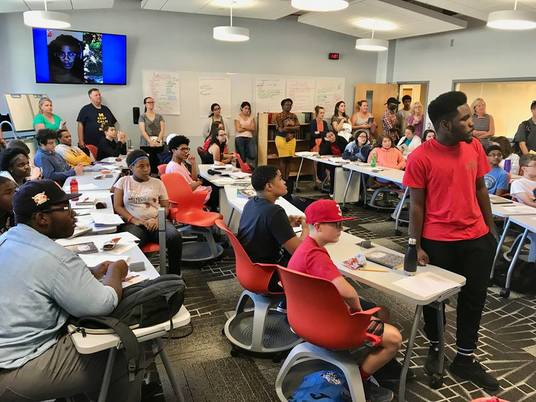
Dear shooter, please don’t shoot
Don’t take your anger out on me
Your thoughts in silence lead to gun violence
But don’t take your anger out on me.
He also reported that shootings were “too commonplace” in his community. Similarly, Mila, a 9th grade Puerto Rican female who attends a suburban school, wrote about school shootings in "Goodbye," one of several poems crafted for her yet-to-be-named 1st novel (one inspired by reading Rebound by Kwame Alexander):
It was 9:35; barely through first period,
But after the first shot, he knew that this was serious.
A man was running through the halls,
Kids were hiding in bathroom stalls,
Cradling their friends like dolls,
Tears streaming down faces, like Niagara Falls.
Mila, who attends a high school near Sandy Hook, was fueled by youth activists from Stoneman Douglas High School and set out to narrate the effects gun violence has on youth communities like hers through dramatically telling the story of a school shooting in poetic form.
A Final Thought
Joke #5: Why don’t mummies go on summer vacations? They are afraid to unwind.
Joke #6: Where do eggs go on summer vacation? (This is bad) New Yolk City.
Fairfield University is 60 miles east of New York City, so we relate somewhat to vacationing eggs. During the summer, teachers need to be recharged and many find programs like ours as a means to unwind. CWP-Fairfield’s redesign has allowed us to experiment with new strategies for teaching writing and to put our own writing craft (as well as instruction) to work. Summer provides a space for us to explore young adult literature with a wide range of readers and composers and to think about how these publications can help youth to build their own craft. In short, we are scaffolding writing communities in southern Connecticut and thinking anew about how we collaborate and partner with one another.
Two years ago teacher Dave Wooley attended CWP-Fairfield’s summer institute for teaching writing and collaborated with several young people participating in Ubuntu Academy. During the workshop where he looked at Rick Shaefer’s artwork, Dave penned “Walls,” and rapped:
They’re chantin’ build that wall - I’m hearing hate and anger
And the shouts for the wall are getting louder and louder
They wanna build it high, higher than the towers
Higher than the monsters imagination’s empowered,
Please build me a wall, as high as you can!
Makes me wonder what we’re walling out or walling in.
Dave also performed the song during a presentation at the National Council of Teachers of English conference in St. Louis, Missouri, a year later.
We gotta knock down the walls - be a light in the darkness
Putting up walls - only makes you a target
Reaching out your hand seems a whole lot smarter.
CWP-Fairfield, through our summer redesign, worked to create democratic spaces for teachers to be reflective of instructional practices, writing pedagogy, writer’s craft and professional collaboration. This, coupled with young adult novels and Young Adult Literacy Labs, however, have begun knocking down the walls that have too often been built to separate youth and teaching communities. With our philosophy of Ubuntu, we are reaching out our hands to one another, finding ways to improve writing instruction, and realizing the power of listening to youth. This is how we spend our summer vacations and what we mean by the no bummer summer. We’re having fun being inspired by young writers attending our programs.
Young Adult Literature
Alexander, K. (2016). Booked. New York: HMH Books.
Alexander, K. & Hess, M.R. (2017). Solo. Michigan: Blink
Alexander, K. (2018). Rebound. New York: Houghton Mifflin Hartcourt.
Applegate, K. (2007). Home of the Brave. New York: McMillan.
de la Peña, M. (2010). We Were Here. New York: Delacore Press.
Giles, L. (2018). Fresh Ink, an Anthology. New York: Crown Books for Young Readers
John, W. S. (2009). Outcasts United; A Refugee Team, an American Town. New York: Spiegel & Grau.
Oh, E. (ed.). (2017). Flying Lessons and Other Stories. New York: Crown Books for Young Readers
Reynolds, J. (2017). Long Way Down. New York: Atheneum
Stone, N. (2017). Dear Martin. New York: Crown Books for Young Readers
References
Applebee, A. N., & Langer, J. (2013). Writing Instruction That Works: Proven Methods for Middle and High School Classrooms. New York: Teachers College Press.
Caracciolo, D., & Mungai, A. M. (2009). In the Spirit of Ubuntu: Stories of Teaching and Research. Boston: Sense Publishers.
Crandall, B. R., Bedard, K., Fortuna, P., Herzog, K., Mitchell, S., Wahlde, J. v., & Zabilansky, M. (2018). We too are Connecticut: Digital Ubuntu with Matt de la Peña's We Were Here. In J. S. Dail, S. Witte, & S. T. Bickmore (Eds.), Toward a More Visual Literacy: Shifting the Paradigm with Digital Tools and Young Adult Literature. Maryland: Rowman & Littlefield.
Crandall, B. R. (2017). Writing with Ubuntu in support of refugee and immigrant youth. English in Texas, 46(2), 12-17.
Darling-Hammond, L., Hyler, M. E., Gardner, M., & Espinoza, D. (2017). Effective Teacher Professional Development. Retrieved from Washington, DC:
Reinking, D., & Bradley, B. (2008). On Formative and Design Experiments. New York: Teachers College Press.
Russell, D. (2009). Uses of activity theory in written communication research. In A. Sannino, H. Daniels, & K. D. Gutiérrez (Eds.), Learning and expanding with Activity Theory (pp. 40-52). New York: Cambridge University Press.
Swanson, D. M. (2009). Where have all the fishes gone? Living Ubuntu as an Ethics of Research and Pedagogical Engagement. In D. Caracciolo & A. M. Mungai (Eds.), In the Spirit of Ubuntu: Stories of Teaching and Research. Boston: Sense Publishers.
Whitney, A. (2008). Teacher transformation in the National Writing Project. Research in the Teaching of English, 43(2), 144-187.
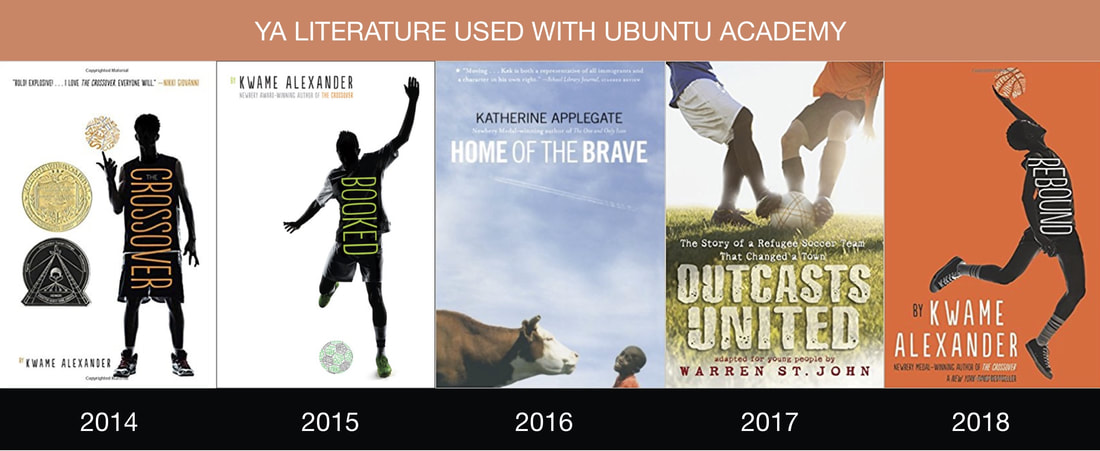
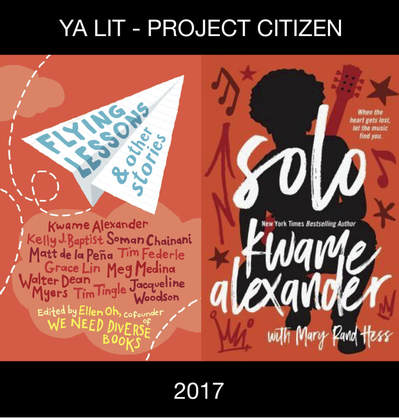
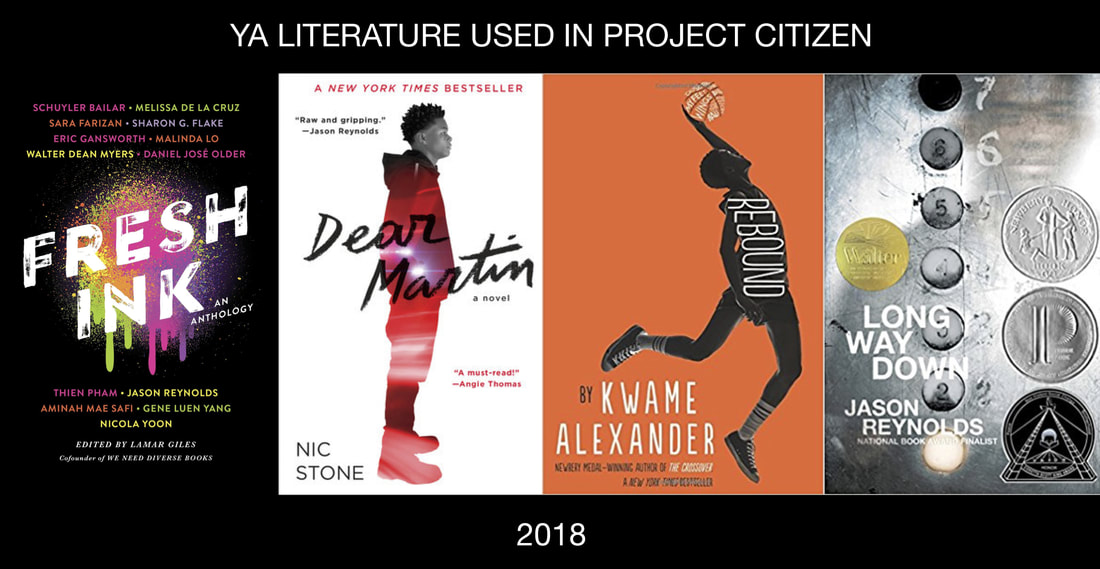

 RSS Feed
RSS Feed